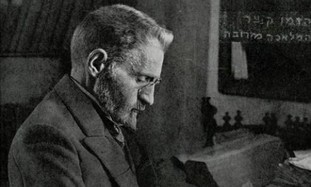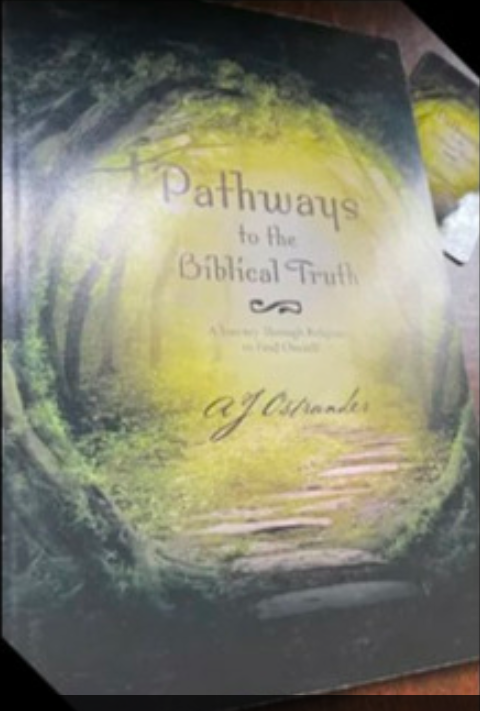If these ruins were in a country like Italy or Spain, then they would be the most visited sites on earth...
The process of the Hebrew language revival began on October 13th 1881, as Eliezer Ben-Yehuda and his friends agreed to exclusively speak Hebrew in their conversations. As a result, the language, which had not been spoken as a mother tongue since the second century CE, once again became the national language of Israel.
Some three thousand years earlier, when the Jewish people first arrived in Israel with Joshua, Hebrew was established as the national language and lasted for more than a millennium, until the Bar Kohba war in 135 CE. From that point on, Hebrew was exclusively used for literature and prayer, until late in the 19th century with the first aliya and Ben-Yehuda.
Born in 1858, Ben-Yehuda grew up in Belarus, formerly part of the Russian Empire, where he started studying the Bible. At the age of three, he started learning in a cheder, a Yeshiva for young children, where he learned ancient Hebrew. By the time he was twelve, Ben-Yehuda was familiar with large portions of Torah, Mishna and Talmud. Hoping he would become a rabbi, his parents sent him to a Yeshiva where he continued studying Torah and ancient Hebrew.
In the following years, he learned French, German, and Russian and traveled to Dunaburg, Latvia for further education. With the rise of Jewish nationalism in 19th century Europe, Ben-Yehuda was captivated by the innovative ideas of Zionism. While reading the Hebrew language newspaper HaShahar, he became acquainted with Zionism and concluded that the reviving the Hebrew language in the Land of Israel would unite all Jews worldwide. And so, in 1881, Ben-Yehuda made aliya and came to live in Jerusalem. At that time, it was believed that one of the criteria needed to define a nation worthy of national rights was its use of a common language spoken by both the society and the individual. In fact, Ben-Yehuda regarded Hebrew and Zionism as one and the same, writing that, “The Hebrew language can live only if we revive the nation and return it to the fatherland.” According to researchers, it appears that in the fifty years preceding the start of the revival process, a version of spoken Hebrew already existed in the markets of Jerusalem. The Sephardic Jews who spoke Ladino or Arabic and the Ashkenazi Jews who spoke Yiddish needed a common language for commercial purposes, and the most obvious choice was Hebrew. It should be noted that it was not a native mother tongue as such, but more of a pidgin.
As part of his vision of reviving Hebrew, Ben-Yehuda raised his son, Ben-Zion Ben-Yehuda (the first name meaning “son of Zion”) speaking entirely in Hebrew. He refused to let his son be exposed to other languages during childhood. It is said he once reprimanded his wife for singing a Russian lullaby to the child. As a result, his son Ben-Zion became the first native speaker of Modern Hebrew.
Ben-Yehuda was a major figure in the establishment of the Committee of the Hebrew Language (Va’ad HaLaschon), later the Academy of the Hebrew Language, an organization that still exists today. He wrote the first Modern Hebrew dictionary and became known as the “reviver” of the Hebrew language.
However, while he worked tirelessly to raise awareness and fought its opponents, what finally brought about the revitalization of Hebrew were not Ben-Yehuda’s activities in Jerusalem, but developments in the communities of the First Aliya (1881-1903) and the Second Aliya (1904-1914). The first Hebrew schools were established in these communities; Hebrew increasingly became a spoken language of daily affairs, and finally became a systematic and national language. Yet Ben Yehuda’s fame and notoriety stems from his initiation and symbolic leadership of the Hebrew revival. In fact, Cecil Roth summed up Ben-Yehuda’s contribution to the Hebrew language: “Before Ben-Yehuda, Jews could speak Hebrew; after him, they did.” Ultimately, the process of Hebrew’s return to regular usage was unique; there are no other examples of a sacred language becoming a national language with millions of first language speakers.
In 1922, Ben-Yehuda died from tuberculosis at the age of 64.The house he built in the Talpiot neighborhood of Jerusalem was later transferred to the local municipality and is today a conference center and guesthouse run by the German organization Action Reconciliation Service for Peace, which organizes workshops, seminars and Hebrew language ulpan programs.

While Hebrew had remained the language of study and prayer, it had not been a spoken language for centuries. Few believed it could again become a tongue of everyday speech, but one man did, and dedicated his life to reviving Hebrew. His name was Eliezer Ben-Yehuda.
Source: This week in history: Revival of the Hebrew language
http://m.jpost.com/Jewish-World/Jewish-News/This-week-in-history-Revival-of-the-Hebrew-language



